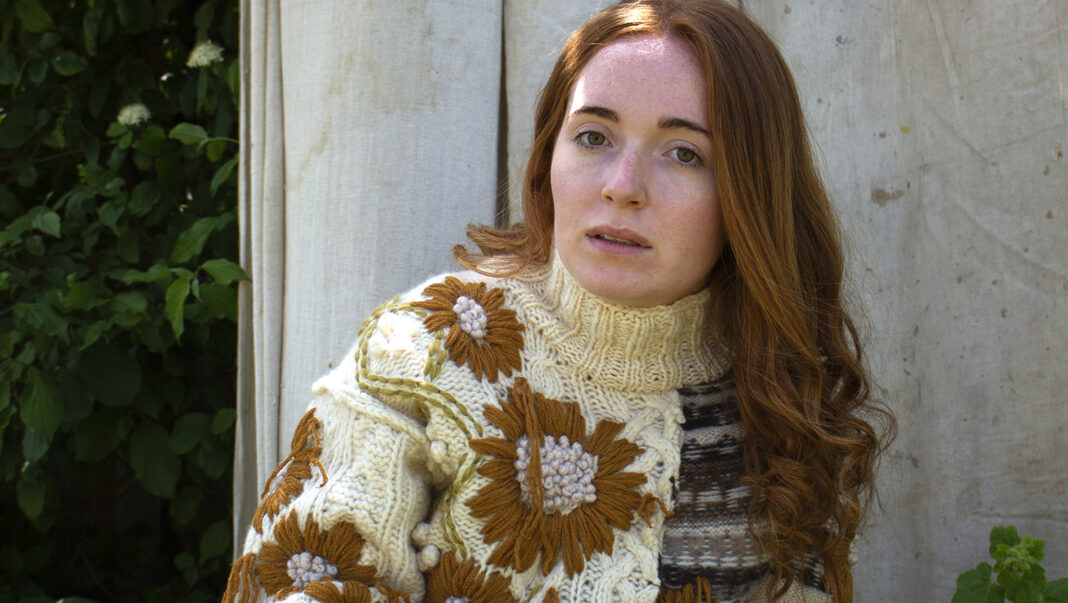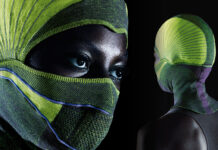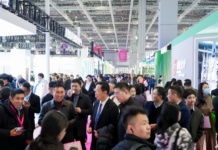Amy Goacher’s debut collection values slow fashion, British knitwear heritage and beauty held within exquisitely crafted details. Graduating from Kingston School of Art with a BA in Fashion, Amy specialised in knitwear and recalls her “obsession” with knitting came to life during her high school textiles lessons. The ability to build fabrics through knitted construction drew her to the specialism, allowing her to impact both the textiles and the silhouette of her garment designs.
Paying homage to the heritage of the British knitwear industry, Amy’s graduate collection ‘NG1200’ offers six looks. Her research began back in 2019, with a 1200 mile road trip from the South Coast of England, to Hawick in the Scottish Borders.
“I stopped at lots of ‘knitty’ venues along the way, including The Framework Knitters Museum in Nottingham, The Bradford Industrial Museum and Johnston’s of Elgin in Hawick. I was fortunate enough to gain access to the Framework Knitters library and archive, where I learned about the rich history surrounding the area. Honing in on the history of hosiery and the turbulence that the British knitwear industry faced, I wanted the collection to be a contemporary homage to its history.”
Amy’s approach to sustainable practice:

Initially designing her collection for Dubied manufacturing, Amy’s plans were thrown off course when the lockdown was implemented, and the knit workshops were closed. Adapting quickly to her change of circumstances, she problem solved her way through manufacturing from home. As an accomplished hand knitter, Amy increased her hand knitted offering within the collection. She introduced the up-cycling of old knitted garments too, culminating in a truly waste reducing, sustainable body of work. Choosing to use only noble or organic fibres, her re-purposing of garments was a creative way of extending garment life, making these pieces her own through “stamping my designer DNA onto the fabrics”.
Colour & yarn:
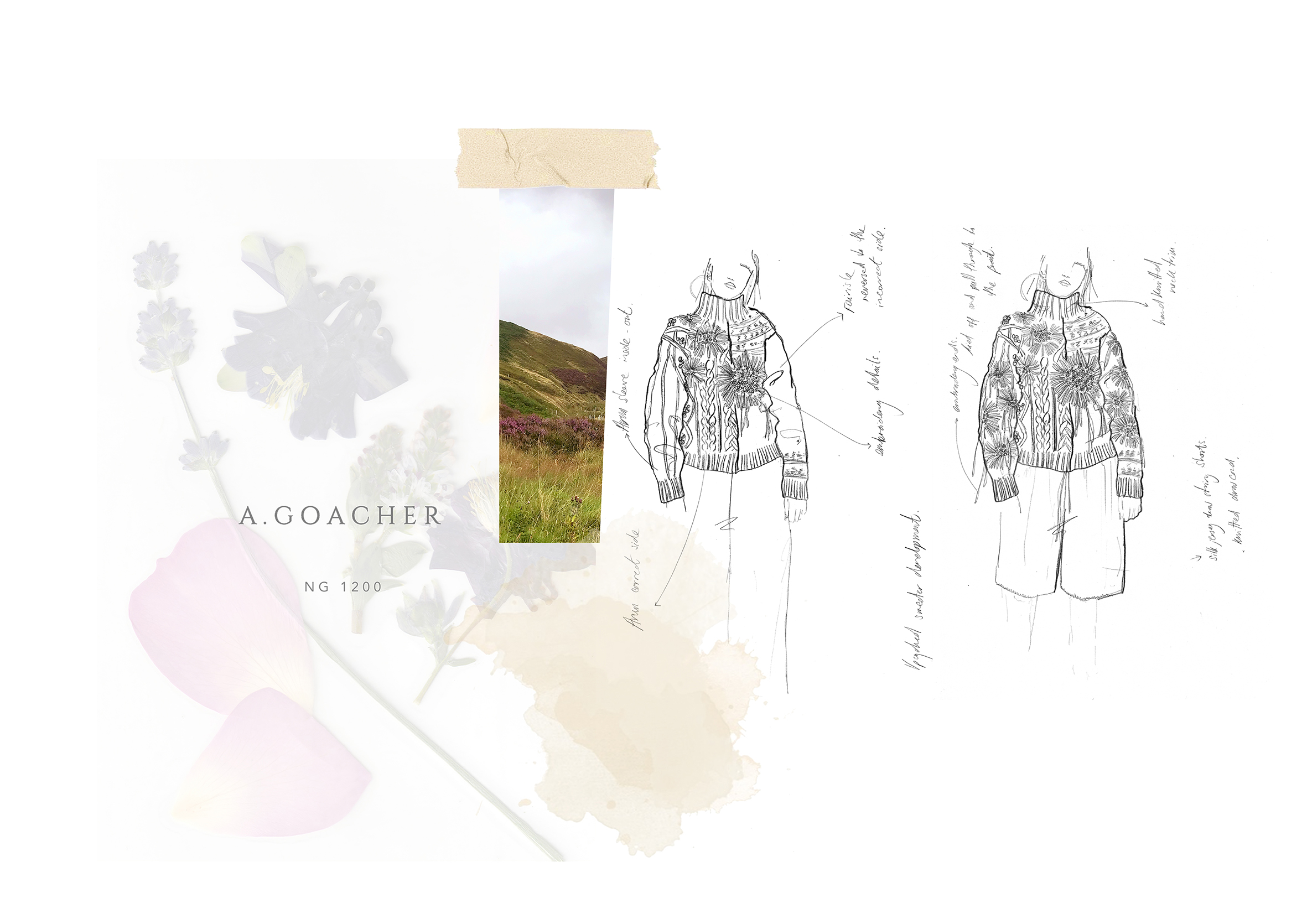
Whilst collecting her cultural and historical research, Amy also built her colour palette. Inspired by the nudes, browns and fleshy peach tones within the Framework Knitters archive, she also pulled tones from the landscapes she saw on her travels, introducing pops of green and rich darks.
Celebrating localism, Amy recognised the specific fibre histories of each place she visited:
“I restricted myself to three fibres- each fibre giving a ‘nod’ to the specific fibres used for the production of hosiery throughout The Midlands. Cotton was specific to Nottingham, silk was for Derby and wool was used in Leicester.”
Construction & detailing:
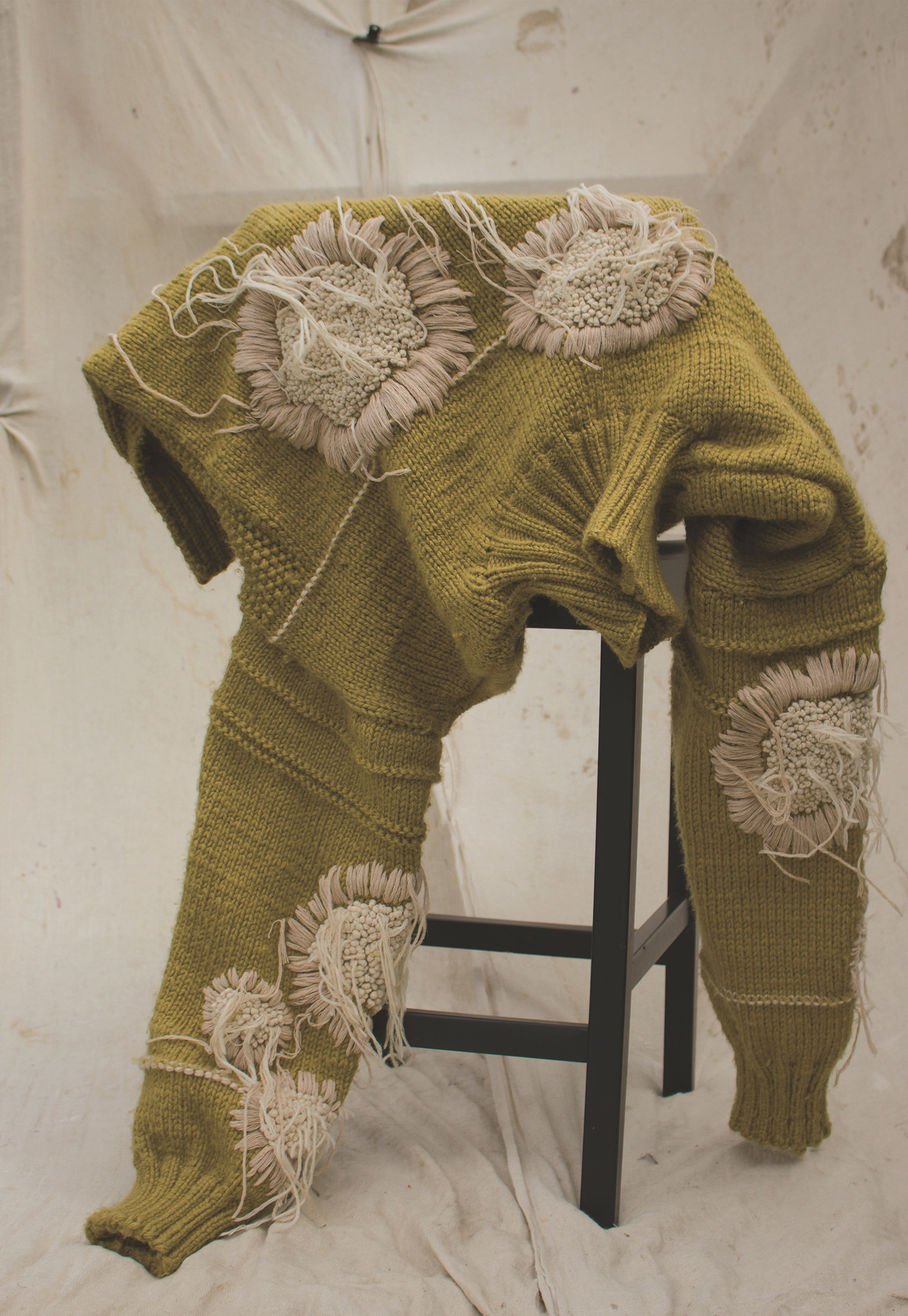
“Sampling is key to my design process. I find it’s a conversation between an initial sketch and the fabric until I get something I’m happy with. Sometimes I’ll have a stitch in mind and will know the solution straight away; other times it will take a bit of trial and error. Happy accidents are always welcomed, and I like the process to be an organic one where possible”
Showcasing the breadth of her crafting and making skills, NG1200 contains hand knits, as well as Dubied and domestic machine knitted fabrics. Applying hand crafted processes post-machine, Amy introduced embroidery, Swiss darning, sewing and smocking to elevate each piece, echoing her historic research. Her embroidered floral motifs were inspired by hosiery embroidery that women and children used to stitch, making hosiery more profitable. In the same way, Amy’s embroideries elevate each of her knits.
For her up-cycled pieces, Amy lightly felted each pre-existing garment to avoid unravelling. Sketching design ideas for reconstruction, then draping on the stand was a circular process, each stage informing the patchwork placements. Alterations to achieve optimum fit included picking up stitches around the armholes and neck, and Swiss darning and embroidery methods were then applied on top. This parity across her hand knits and up-cycled styles brought the collection narrative together through Amy’s own unique handwriting translated in stitch.
With such a strong focus on craft and quality, dedication in hand worked hours is entwined into each garment. ‘The Olive Jumper’ took just over a week to knit and embroider. Where Amy up-cycled pieces, she was able to save time on garment construction and focus on applying the intricate embroideries. When discussing the implications of such time consuming crafting, Amy shared, “There’s absolutely no denying that the hand-finished processes are very labour intensive, but I personally think the pay-off is well worth the work!”.
Industry recognition:
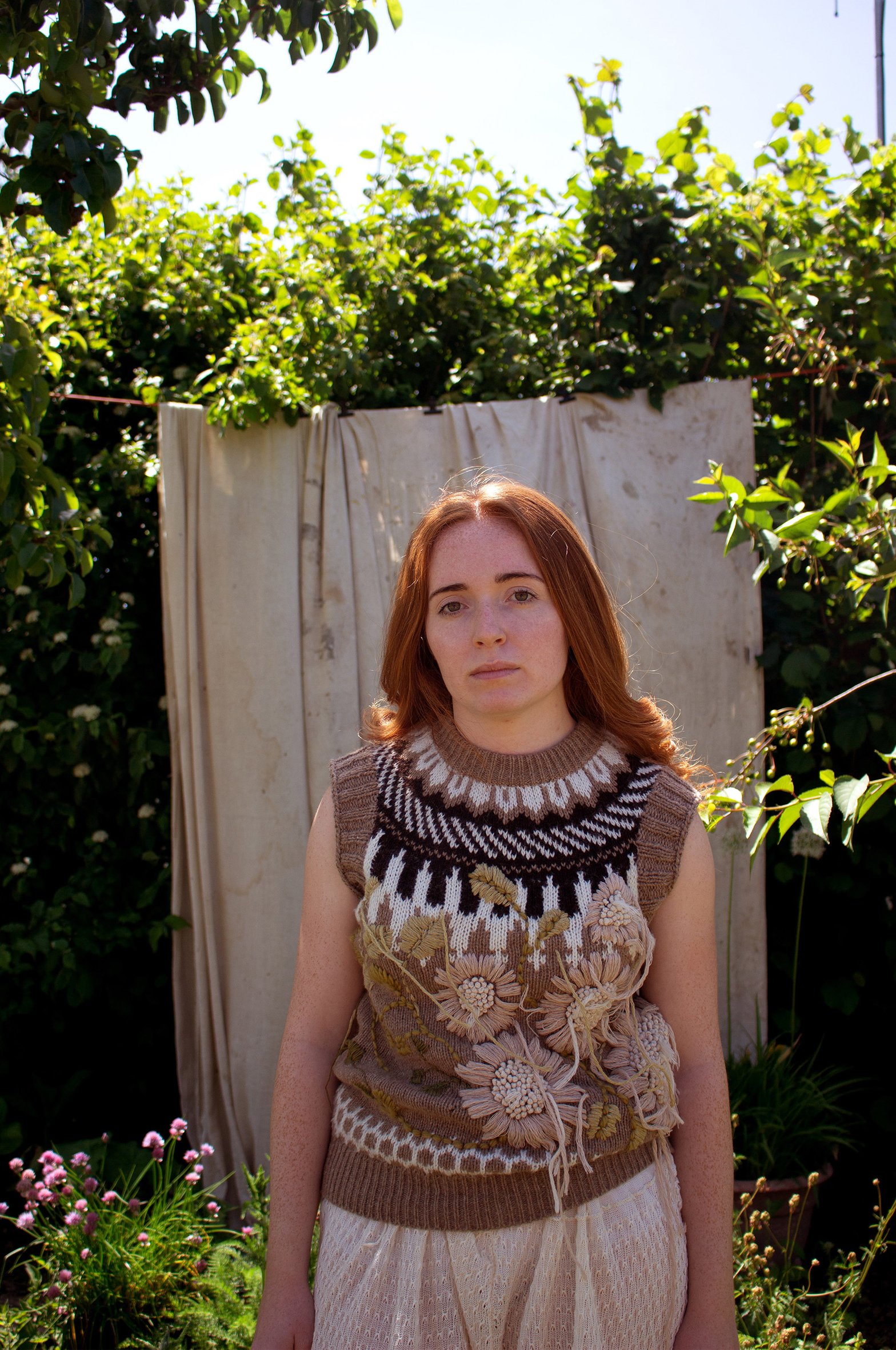
The industry awards that Amy has been nominated for are a testament to the success of her collection. Nominated by her tutors, Amy was put forward for the David Band Textiles Award with Graduate Fashion Week. Presenting her collection to the judges over zoom, Amy has now been shortlisted as one of three finalists and will take part in the awards ceremony this September.
Consorzio Promozione Filati and Fondazione Pitti Immagine’s ‘Feel the Yarn’ competition is another award Amy is a finalist for, illustrating her recognition as one to watch. With the restrictions of the global pandemic, this final show will be held on a digital platform for the first time, with the final judging taking place from the 1st-3rd September.
“Both competitions have been a fantastic opportunity to see the work of graduating students from all over the world. I’ve digitally connected with so many people during this time- it’s always exciting to see new perspectives of working, new techniques and skills.”
The initial impact of the lockdown during her final year was thoroughly disappointing for Amy, as she packed up her collection and re worked her designs at home. Like her fellow graduates of 2020, this was not the graduation she envisioned. But on reflection, Amy shared the unexpected positives that arose from this challenging time. The new-found hours she had facilitated the labour intensive techniques she employed, and the process taught her about herself, the way she works, and how she can make the most of her design processes when pushed to the limit. Solidarity through connecting digitally with her peers lifted her spirits, and like many graduates, Amy has been truly grateful for the transition to digital opportunities that many platforms have made.
Sharing her hopes and plans for the future, Amy detailed, “I’m actively searching for employment within the knitwear industry, although increasingly difficult during these unprecedented times, whilst continuing to develop my portfolio and skillset. Wherever I end up, I hope to make a positive impact on the knitwear industry and I will continue to encourage sustainable design solutions.”
Knitting Industry Creative wishes Amy the best of luck in her upcoming competitions, and looks forward to seeing more of her skilfully crafted, sustainable knitwear.
Amy’s design portfolio can be viewed here.
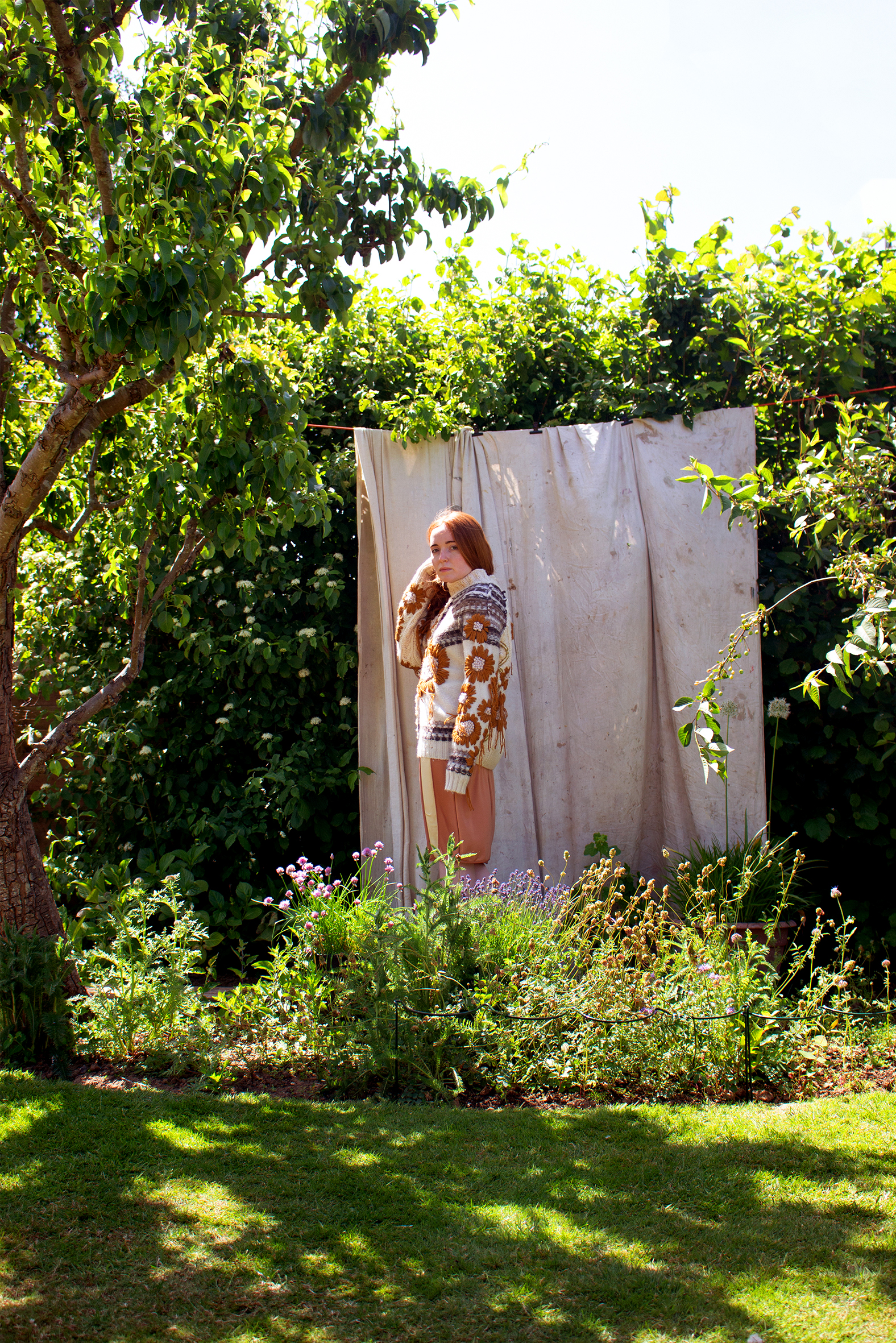

Subscribe To Our Newsletter
Join our mailing list to receive the latest news and updates from our team.


